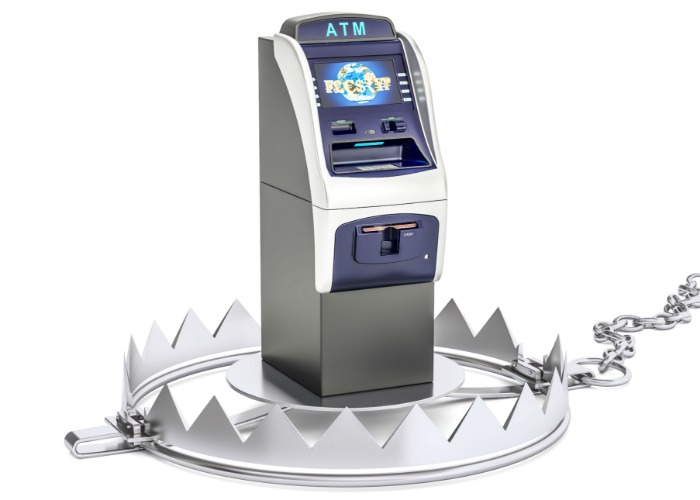Cash advances: the ATM mistake that’s costing us more than £400,000 a day

Using your credit card to get cash could land you with high charges and higher interest payments – and it’s not just withdrawals that are penalised. Here's how to avoid this rip-off that makes the banks rich.
Banks are making over £400,000 a day from people using their credit cards to withdraw cash.
The last year has seen a big increase in ‘cash advances’; using your credit card to withdraw cash at ATMs, which incurs a 3% fee from most providers.
What's more, interest is generally far higher for cash withdrawals and is applied instantly, so even if you pay your balance off at the end of the month it’ll still cost you extra.
Despite this, over nine million cash withdrawals were made using credit cards between May and July, according to UK Finance, the industry body, with £133 taken out on average.
With charges and interest added on, that withdrawal would cost around £140 if it was repaid after one month, assuming a 25% interest rate.
What counts as a cash advance?
Using your credit card rather than debit card at the ATM is the most common way to fall foul of cash advance rules.
However, a number of card payments are also treated as cash advances by various lenders.
These commonly include gambling and gaming transactions – both in betting shops and online – as well as using credit cards to buy foreign currency or travellers’ cheques.
Buying stocks and shares or cryptocurrency could also be considered cash advances and are treated as such by Barclaycard.
Transferring money from your credit card to your current account, such as to pay a bill, is also seen as a cash advance.
If you have a cashback or rewards credit card, it can be tempting to use it whenever possible, but be aware that cash-advance transactions are usually excluded from earning cashback or rewards.
Cash advances don't, however, affect your credit score by themselves.
Read more: what to do if you receive a shock bill
How to avoid the ATM rip-off
Thankfully, you have a number of alternatives to withdrawing cash on your credit card, which we'll look at now.
Note that some can be done immediately while others will require a bit of preparation beforehand.
The most obvious solution (depending on what it is you need money for), is to simply pay for whatever you're buying with your credit card in the store.
If you need to pay someone or the store in question doesn't accept cards, look into transferring money from your credit card to your debit card and withdrawing it that way. You'll avoid the cash advance fee as well as the increased interest rate.
If you really need to use an ATM, there are cards that allow you to do so fee-free.
The Santander Zero and 118118 Money cards don’t charge withdrawal fees in the UK, but the former still applies interest immediately and the latter is a poor option in general (here’s why).
So neither is an ideal solution to the problem.
Instead, there are several bank accounts that offer interest-free overdrafts, including Santander, Nationwide, First Direct and M&S Bank.
Make sure you stay within the buffer, otherwise you could once again be hit wth rip-off interest rates or even daily fees.
If you’re struggling with debt, you should consider getting free debt advice.
Comments
Be the first to comment
Do you want to comment on this article? You need to be signed in for this feature